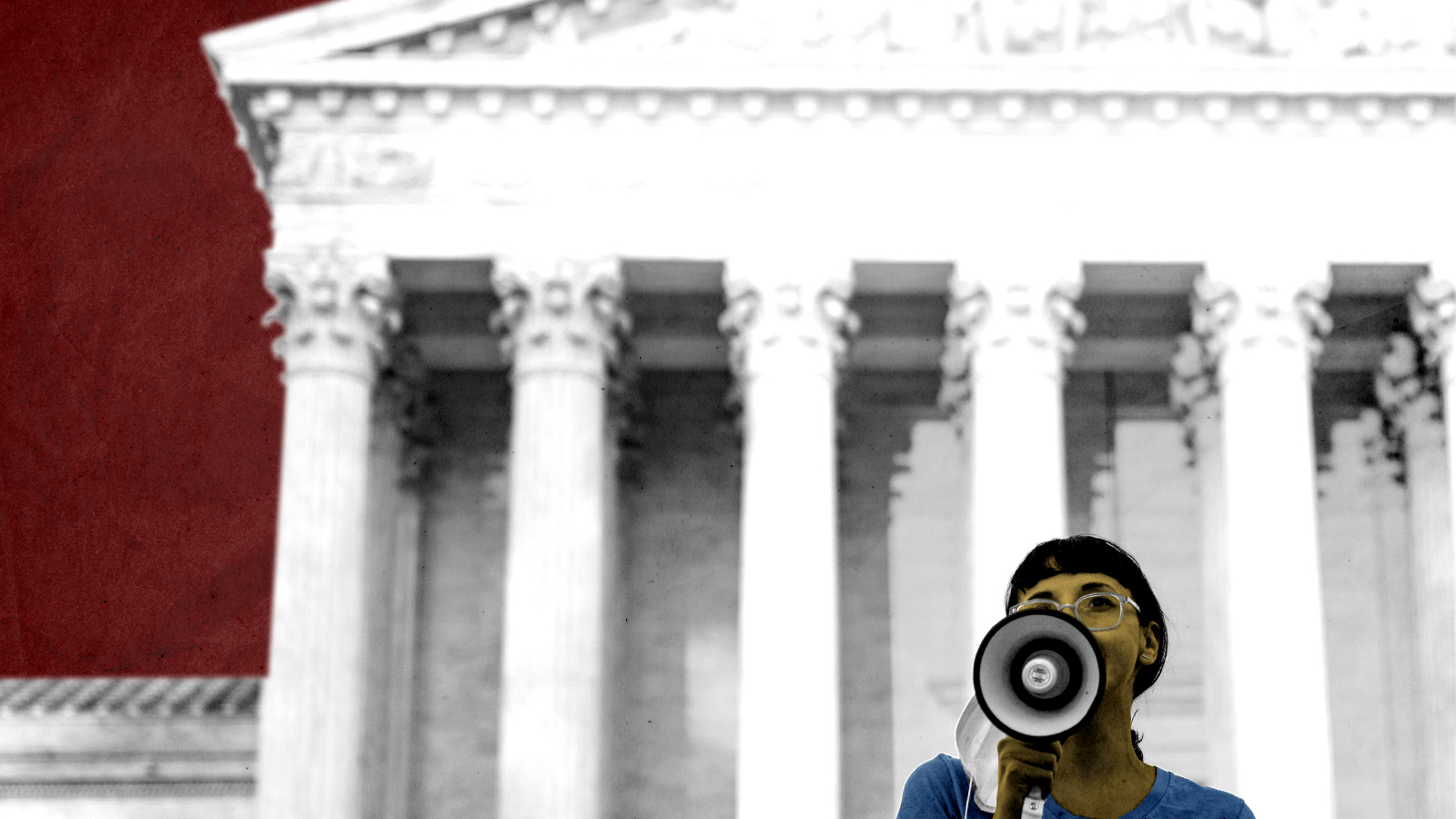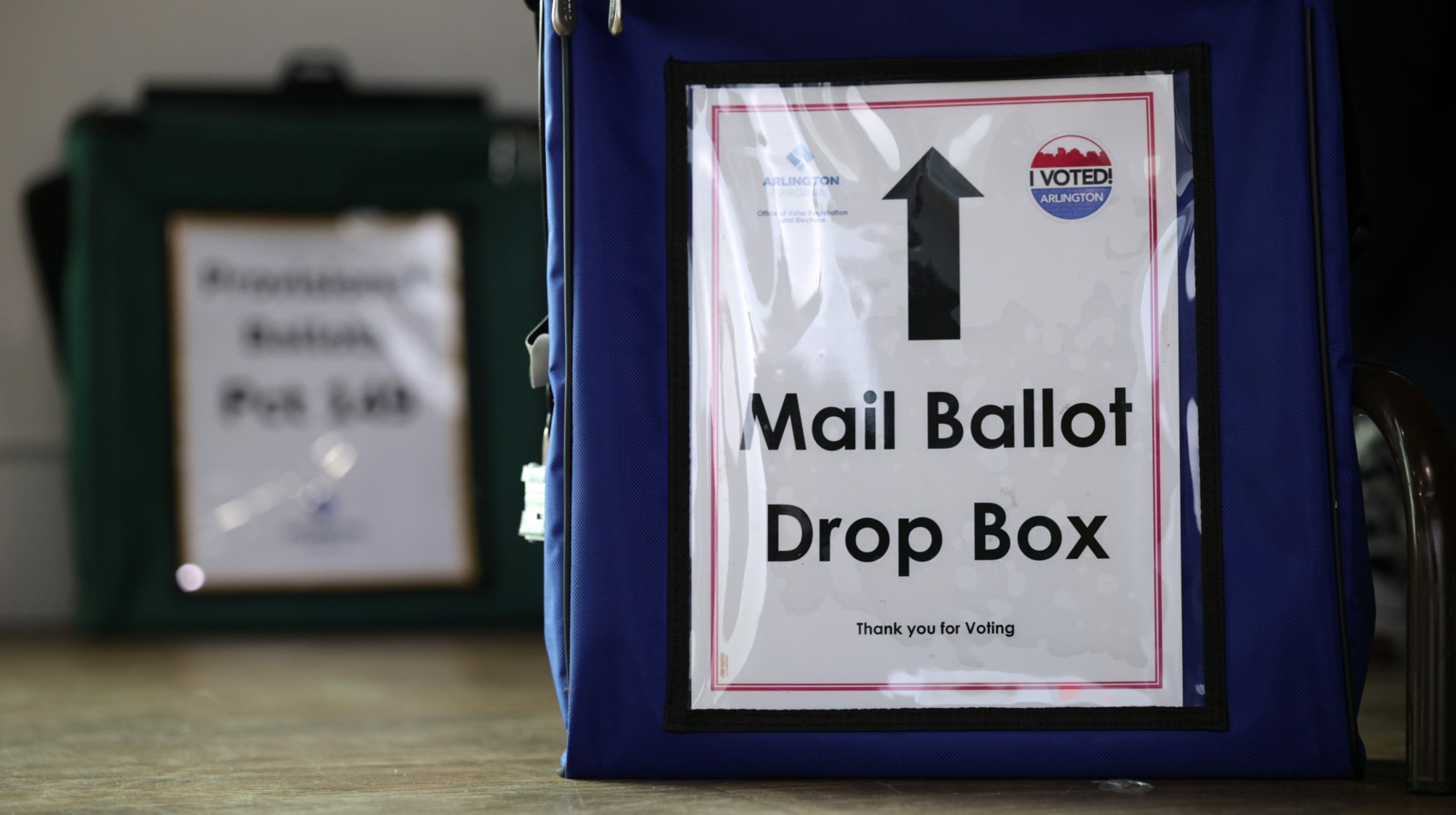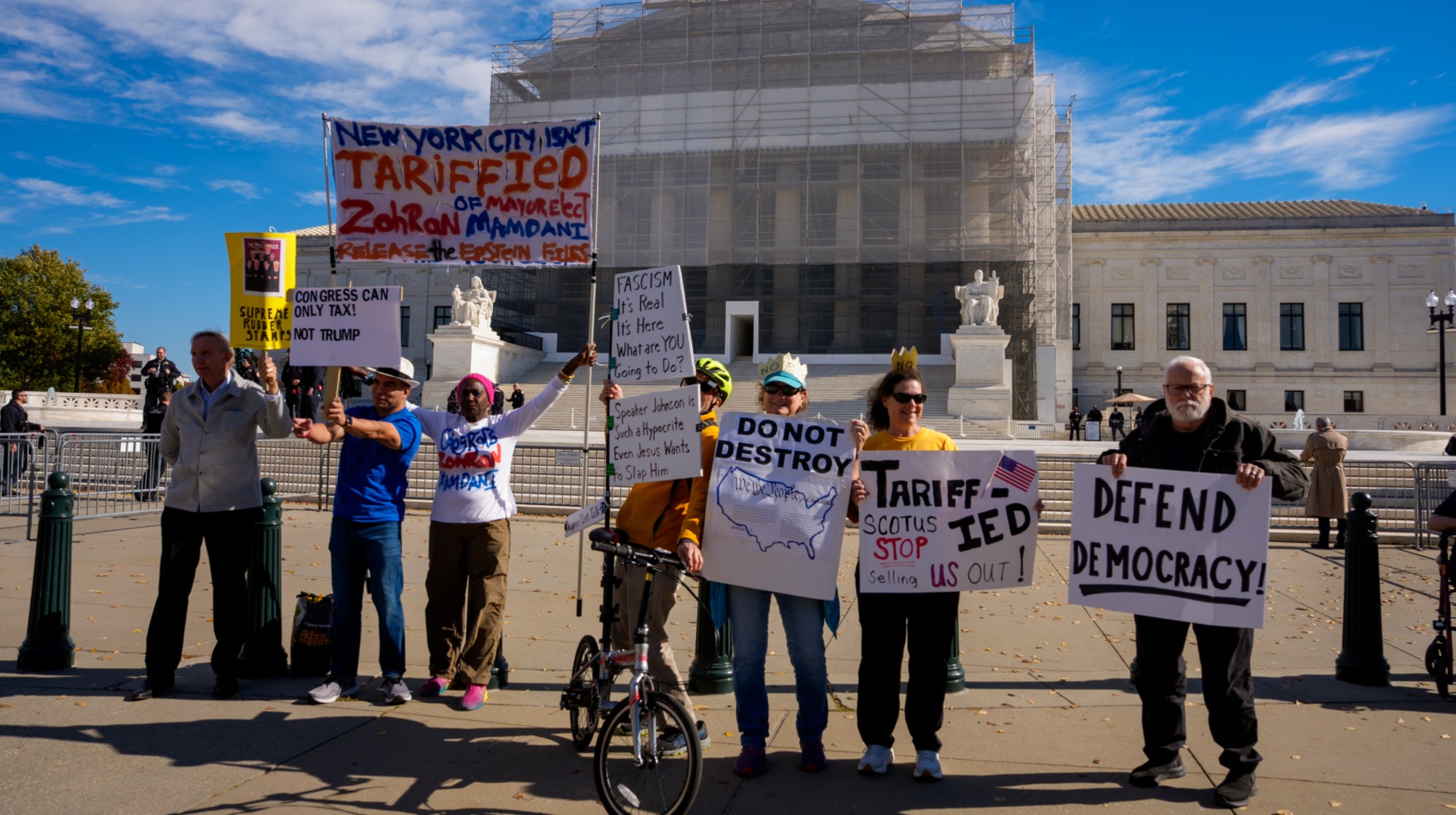Why viability is the best possible abortion compromise
America's abortion precedents are a mess. They're also as good as we'll get.


A free daily email with the biggest news stories of the day – and the best features from TheWeek.com
You are now subscribed
Your newsletter sign-up was successful
Even in our politically polarized time, abortion stands out as an issue uniquely defined by extremes.
On one side, anti-abortion activists want the Supreme Court to overturn Roe v. Wade (1973) and Casey v. Planned Parenthood (1992), the cases that established and reaffirmed women's constitutional right to terminate a pregnancy. This would return to state legislatures the question of whether and when an abortion is permitted, and many of them would promptly move to outlaw the procedure. On the other side, many pro-choice activists not only want to see Roe and Casey upheld but would also prefer reproductive rights to be codified in federal law, with the right to an abortion extended further into pregnancy than those landmark decisions allow.
This polarization suggests the status quo affirmed by Casey is itself a compromise position, since it treats abortion as a right, but not an absolute one. A woman's right to an abortion is balanced against the state's interest in protecting the rights of the baby, which come into play at "viability" — the point in pregnancy when the fetus can survive outside the womb (currently 22 to 23 weeks). Prior to that point, abortion must be available. After it, states are free to restrict it.
The Week
Escape your echo chamber. Get the facts behind the news, plus analysis from multiple perspectives.

Sign up for The Week's Free Newsletters
From our morning news briefing to a weekly Good News Newsletter, get the best of The Week delivered directly to your inbox.
From our morning news briefing to a weekly Good News Newsletter, get the best of The Week delivered directly to your inbox.
This arrangement could well change between now and the end of June 2022, when the Supreme Court will decide Dobbs v. Jackson Women's Health Organization, a case concerning a Mississippi law that restricts abortion at 15 weeks, seven to eight weeks prior to viability. During oral arguments last week, Chief Justice John Roberts sounded eager to uphold Mississippi's restriction without overturning Roe and Casey, which the other five conservative justices seemed willing and perhaps enthusiastic to do. Isn't viability an arbitrary line? Roberts asked. Why not 15 weeks instead?
While Roberts should be applauded for seeking conciliation on this divisive issue, allowing Mississippi's 15-week restriction to stand won't work as a matter of constitutional law. The only potentially stable compromise on abortion can be found at the viability line.
At first glance, Roberts seems to have a point. Nothing special happens to a fetus when it becomes possible for it to survive outside the womb. A soul doesn't enter it at that moment. It isn't suddenly able to demand its rights be recognized. The viability line also shifts over time, getting closer to conception as medical advances enable babies born prematurely to survive ever earlier. Given this fluidity, why not allow Mississippi's law banning abortion after 15 weeks to stand instead? What's really the difference between 15 weeks and viability at 23 weeks?
The difference is that the viability line represents the point at which it's reasonable for the rights claim of the mother to give way to the rights claim of the fetus. That transition obviously can't happen an hour before a healthy, full-term baby is about to be born at 40 weeks, since this would be tantamount to a right to infanticide. But it also can't happen 14 weeks after conception, since that would deny the liberty, independence, and bodily integrity of the pregnant woman, with the state forcing her to serve as the functional equivalent of a living incubator.
A free daily email with the biggest news stories of the day – and the best features from TheWeek.com
This points to the need for a line between these two extremes — and viability, conceptually if not chronologically midway between them, is uniquely suitable. It's the moment in pregnancy when it makes sense for the rights of the fetus to come into play in legal terms, since it's the moment at which the state can take responsibility for protecting the life of the unwanted fetus without transgressing the reproductive rights of the woman.
The right to an abortion, after all, amounts to a woman's right to cease being pregnant. At viability this can be accomplished without ending the life of her baby. In practical terms, this could mean that in certain states, a woman seeking to terminate her pregnancy after viability might be required to give birth instead, with the baby being treated in a newborn intensive care unit rather than being killed in an abortion. The mother would then be free to give the child up for adoption if she wished.
Viability is the natural gestational threshold at which it makes sense for states to begin restricting abortion. It's certainly more reasonable than drawing the line at 15 weeks instead. And this would almost immediately become apparent if the chief justice got his way and the high court upheld Roe and Casey while allowing the Mississippi law to stand. If that happened, another state would very quickly attempt to pass a law restricting abortion even earlier — at, say, 12 weeks. Why would that be impermissible when 15 weeks isn't? And if 12 weeks passed constitutional muster, how about 10 weeks? Or 8? Or 6?
In each of these cases, it would be up to the nine justices on the Supreme Court to make a determination about whether the abortion restriction should be considered constitutional. Roberts has expressed his disapproval of the court attempting such administrative fine tuning in decisions dealing with electoral redistricting — because he doesn't want the court having to weigh in every time someone raises an objection to a gerrymander and resolving the question based on a feeling. The same kind of administrative mess, only this time involving matters of life and death, would arise in its jurisprudence of reproductive rights as soon as the court diverged from the viability standard.
For this reason, I assume Roberts will end up voting with the rest of the court's conservative bloc in Dobbs to overturn Roe and Casey 6-3. Such a decision would hand such controversies back to state legislatures, where they were prior to 1973, and where Roberts also prefers battles over gerrymandering to be hashed out. In his majority opinion, I suspect Roberts will point to the arbitrariness of the viability threshold, along with every other conceivable line drawn during pregnancy, in order to justify his reluctant decision to overturn two landmark decisions.
But the viability line isn't arbitrary, even if it moves somewhat closer to conception over time with advances in medical science and technology. Whether that threshold is found at 23 weeks or a few weeks earlier in pregnancy, the moment at which the fetus can survive outside of the womb is the natural place to mark a shift in the state's interests from recognizing the liberty rights of the pregnant woman to recognizing the fetus' right to life.
When it comes to the agonizing issue of abortion, the best we can hope for is to reach a compromise that enables us to respect the rights of each party as much as possible, while also accepting that our efforts to do so will often prove imperfect. In Casey's viability standard, we already have such a compromise. The Supreme Court should respect and uphold it.
Damon Linker is a senior correspondent at TheWeek.com. He is also a former contributing editor at The New Republic and the author of The Theocons and The Religious Test.
-
 Magazine printables - February 20, 2026
Magazine printables - February 20, 2026Puzzle and Quizzes Magazine printables - February 20, 2026
-
 Growing a brain in the lab
Growing a brain in the labFeature It's a tiny version of a developing human cerebral cortex
-
 How are Democrats trying to reform ICE?
How are Democrats trying to reform ICE?Today’s Big Question Democratic leadership has put forth several demands for the agency
-
 Supreme Court upholds California gerrymander
Supreme Court upholds California gerrymanderSpeed Read The emergency docket order had no dissents from the court
-
 The billionaires’ wealth tax: a catastrophe for California?
The billionaires’ wealth tax: a catastrophe for California?Talking Point Peter Thiel and Larry Page preparing to change state residency
-
 How robust is the rule of law in the US?
How robust is the rule of law in the US?TODAY’S BIG QUESTION John Roberts says the Constitution is ‘unshaken,’ but tensions loom at the Supreme Court
-
 Bari Weiss’ ‘60 Minutes’ scandal is about more than one report
Bari Weiss’ ‘60 Minutes’ scandal is about more than one reportIN THE SPOTLIGHT By blocking an approved segment on a controversial prison holding US deportees in El Salvador, the editor-in-chief of CBS News has become the main story
-
 The ‘Kavanaugh stop’
The ‘Kavanaugh stop’Feature Activists say a Supreme Court ruling has given federal agents a green light to racially profile Latinos
-
 Supreme Court to decide on mail-in ballot limits
Supreme Court to decide on mail-in ballot limitsSpeed Read The court will determine whether states can count mail-in ballots received after Election Day
-
 Trump tariffs face stiff scrutiny at Supreme Court
Trump tariffs face stiff scrutiny at Supreme CourtSpeed Read Even some of the Court’s conservative justices appeared skeptical
-
 Has Zohran Mamdani shown the Democrats how to win again?
Has Zohran Mamdani shown the Democrats how to win again?Today’s Big Question New York City mayoral election touted as victory for left-wing populists but moderate centrist wins elsewhere present more complex path for Democratic Party
